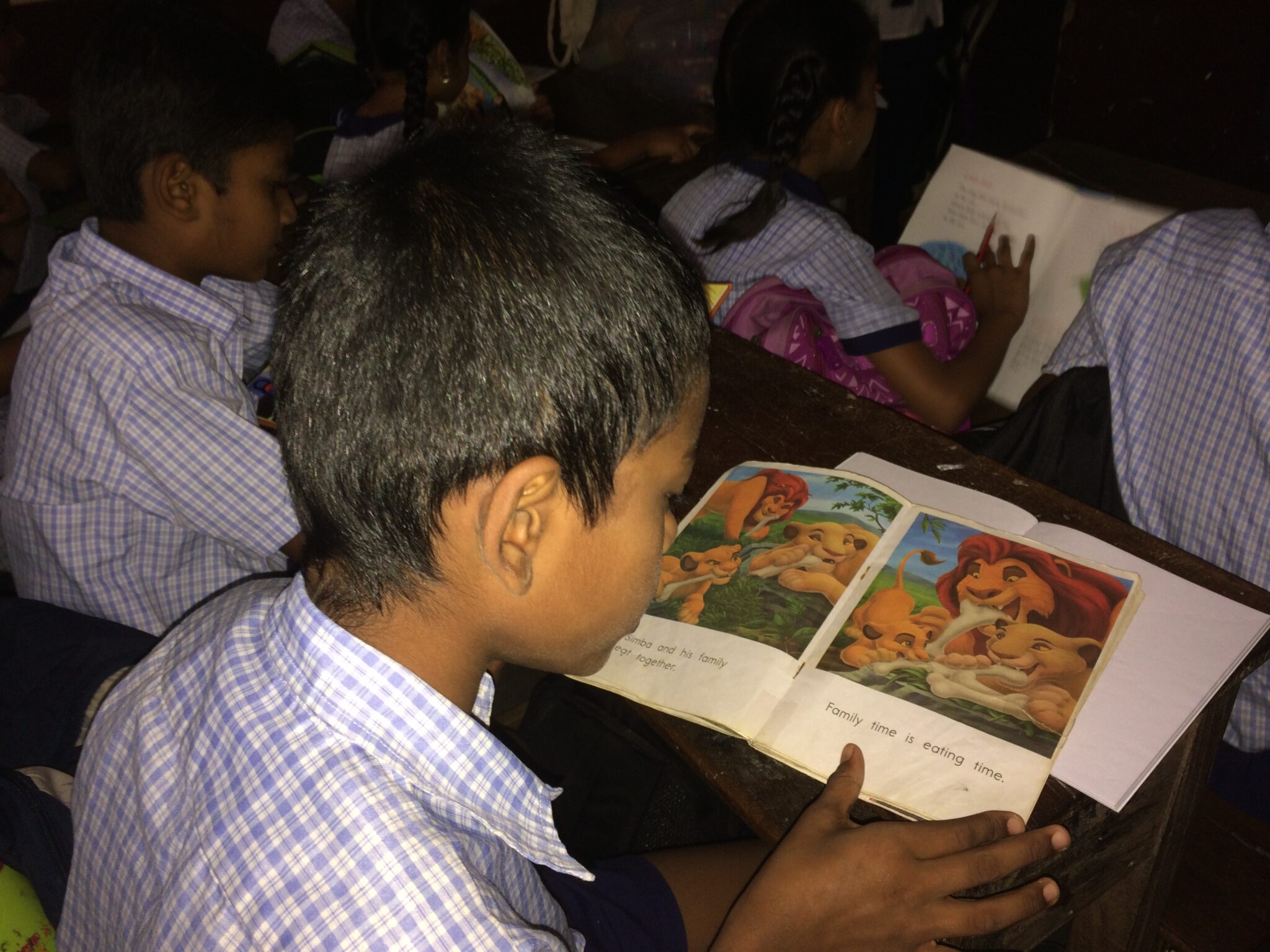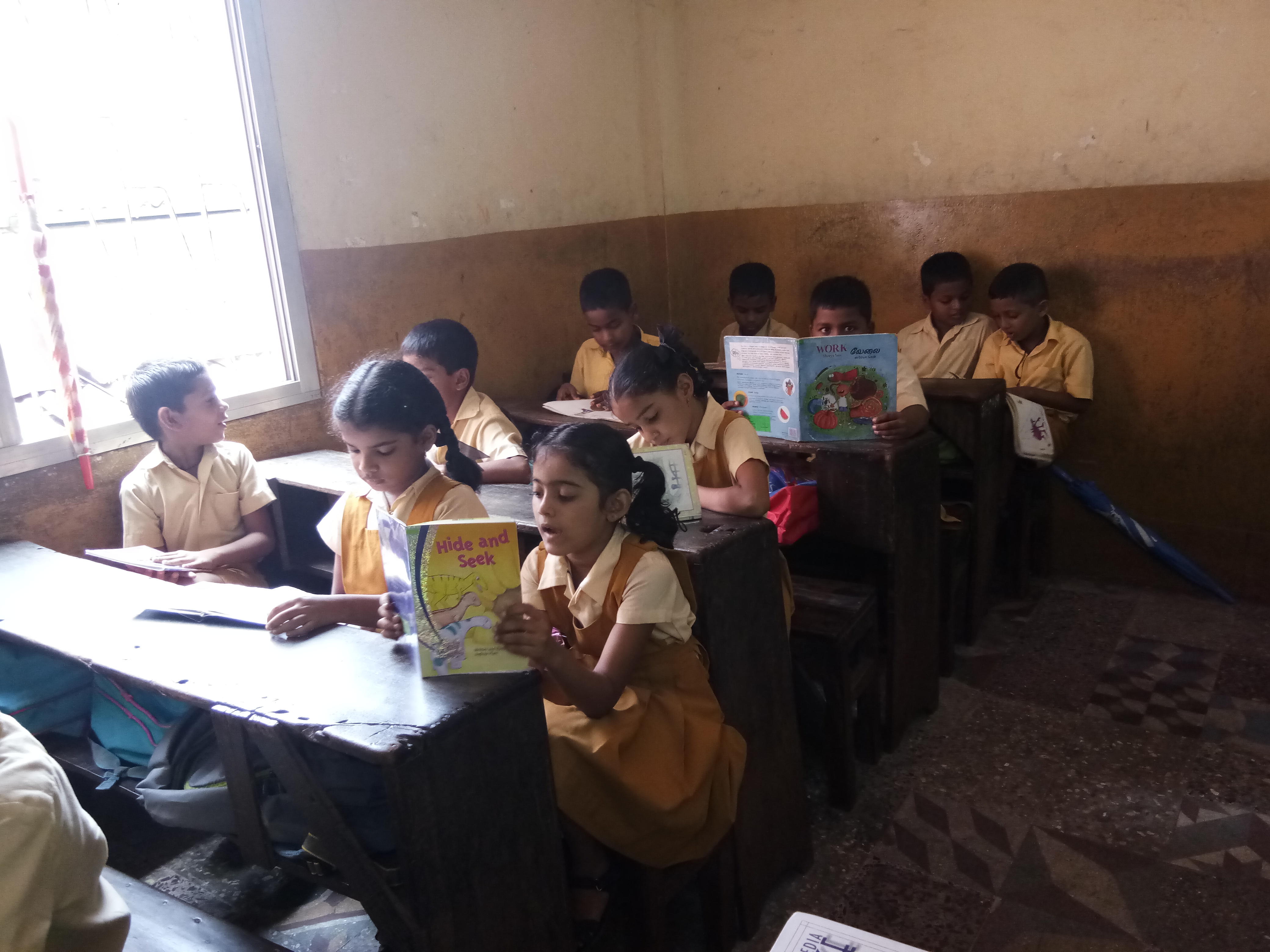This year, the Libraries in Schools (LiS) team conceptualised a new activity called Yo Ya Vachuya (YYV) which means ‘Come, let’s read’, in Konkani. The plan is to conduct this activity at least once a month in classes 3 and 4. By the end of the academic year, each class will have participated in 5 such sessions. We hope that through this exercise, girls and boys will learn to read for pleasure too.
The first of these sessions was held in the first week of July 2018. A detailed session plan was drawn up and copies of this were distributed to all the Resource Persons (RPs). This was the same week that most of the LiS team was busy helping out with another Bookworm project, the LEC; however everyone was sure they were well-versed with the YYV plan.
One set of books was selected for class 3 and another set for class 4. These were graded readers, selected to match the reading skills of the children in these classes. Each child would be asked to read the first page of any one of these books. Based on this, each child would be placed in one of 3 categories of readers – Struggling, Competent or Fluent for that level of Reader. The guidelines for each category were drawn up and agreed upon by the Team.
A week later, the Team re-grouped to discuss their findings. There were some unexpected results. We found that those who are most responsive in class are not “Fluent” readers. These children are barely “Competent” readers and many of them were in the “Struggling“ readers group. It also appeared (though we need more hard data), that the quiet ones, who have to be encouraged to participate in verbal discussions, were much better at reading.
Each LiS session includes a section in which one or two children come to the front of the class to talk about the books they had borrowed in the previous session (Book Talk). The YYV session brought out the fact that children who are able to speak well about their books are not necessarily good readers. Conversely, a child who is usually very distracted in other LiS sessions turned out to be a “Fluent” reader.
Some changes were made in the session plan for YYV-1 when the team realised that there were children who were listening to the readers before them and recalled the words of the text, which they ‘read’ when it was their turn. If these children were stopped mid-way, they were not able to continue ‘reading’. To counter this, some RPs did not go from one child to the next – they followed a random pattern. In classrooms where the RP and Assistant were not able to freely walk around the cramped room, children were called out of their places to a spot at the front of the room.
The Team agreed that conducting these sessions at the start of the academic year will help us plan sessions which are specifically tailored for each class, such as including a more focused approach to key vocabulary.
In some schools, the boys are better readers than the girls – a fact which raises questions of a different nature. (Again, we need more hard data to back this up. Currently, this is the sense that we get!)
The team felt that we share a unique rapport with each set of children we meet in the week – this meant that there were children who were not afraid of recrimination when they shyly told us that they could not read. It is this rapport that we hope to nurture over the academic year. We also hope to be able to encourage the children who struggle with reading now, to become competent readers by the end of the academic year.
If you would like to know more about Yo Ya Vachuya, please do write to me at flavia@bw-mail.in



